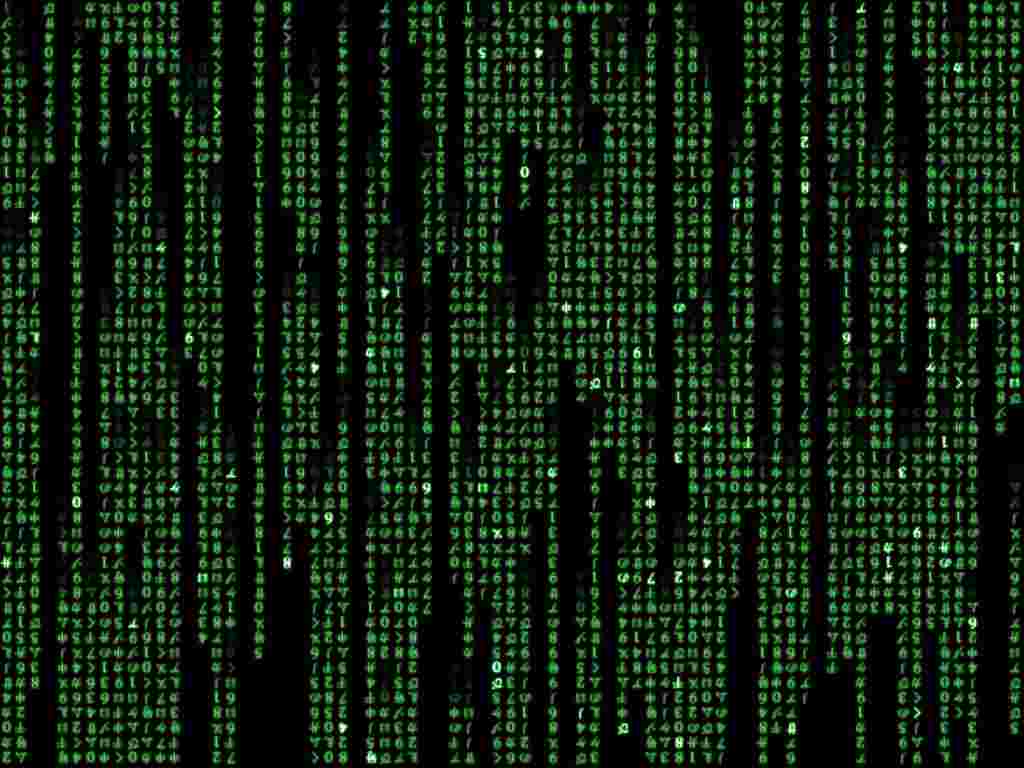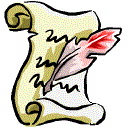These are the chronicles of the esoteric . . .
 What hasn't been discussed enough in my opinion is the blatant and increasingly relevant social commentary the movie
makes. Perhaps this is because the message of The Matrix can only fully be appreciated and recognised in this day,
thirteen years after its release, as we now more clearly move closer to the (dystopian) technologically-overrun age
it prophesied.
What hasn't been discussed enough in my opinion is the blatant and increasingly relevant social commentary the movie
makes. Perhaps this is because the message of The Matrix can only fully be appreciated and recognised in this day,
thirteen years after its release, as we now more clearly move closer to the (dystopian) technologically-overrun age
it prophesied.Stepping back and taking a look at The Matrix as a whole, we can see it presents the human-technology relationship in such a way that is akin to that of Star Trek's portrayal. Both, albeit in different ways, create not only a sense of wonder, but also a sense of caution - of trepidation - toward advancement. To be sure, the portrayal of technology in The Matrix parallels that of Deep Space Nine, which perceives technology as a foreign entity: something to approach with prudence, proper respect, and in many ways fear - it is something to be learned, but something that has a dark past and a dark potential. This perspective stands in contrast to our current 'The Next Generation' attitude, which holds technology as a friendly, impartial force we control - a tool that has no inherent good or evil, but instead one that can be used for either, much like a hammer or a smart phone.
The crew of the Enterprise inhabit a universe not unlike our own where technology functions as an aid to and even an extension of our human capabilities (and perhaps more and more of our 'humanness'). It is however largely taken for granted, constantly being present - and present as a neutral force.
This all changes when the Borg are encountered, and the crew - along with us - learn to fear certain aspects of our friend, technology. The Borg, as cyborgs, are part machine and part humanoid: they are living creatures whose physiology incorporates technology in a vital way.
Likewise, the world of The Matrix, not unlike our own, consists of an overwhelming presence of mechanical devices subversively ruling over us - entities over which humans previously believed to rule - and blinding us to the reality of our current situation: that we are 'born into bondage, born into a prison that [we] cannot smell or taste or touch.'
And it is at this comparison the mirror is placed.
In our day, people without cell phones are seen as either old fashioned or as behind the times - even on the edge of society - and those not on Facebook are surely disconnected from all facets of life: digitally, and therefore existentially, marginalised. Furthermore, the growing addiction to Internet social networks, texting, and the overall need to 'stay connected' is beginning to form castes if not cages, in addition to a variety of hazards.
Places such as Facebook and Twitter function as a sort of hive mind, sustaining connectivity. They are places where not only knowledge is pooled, but also ignorance; still, they construct the virtual reality in which humans have come to live parts of their lives. Our identities are becoming so entwined with our on-line personas that we cannot go anywhere without some device through which to 'plug in' - and the need to be connected more often than not outweighs the import and etiquette of whatever conversation or situation we may be in. Even modern teenagers on a date, as I have witnessed at a local Starbucks, spend the majority of their time staring at their phones, comparing amusing texts or interesting social network activities. How romantic indeed. No doubt they were also on each other's Facebook pages and tweeting about how much they're enjoying lattes with So-and-so.
We have become so addicted that the roots of our very beings extend into the virtual world, and we are assimilated into 'the system' - a system we can no longer give up, but instead one that makes us 'inert, so hopelessly dependent on [it] that [we] will fight to protect it.' A system that has been so taken for granted that 'event pages' are non-chalantly mentioned on TV shows and we all know what they mean. A system so engrained within us that Dr Kevin Warwick, professor of cybernetics at the University of Reading, is convinced that the next step of human evolution will involve technology - he has even performed experiments, on himself, which successfully connected his nervous system to the Internet and allowed him to control an electric wheel chair and an artificial hand!1 A system we are losing control over as it becomes the entity which feeds upon us - rules over us.
Conversely, to be disconnected is to be alone, is to be purposeless, like a freed, but lost, drone. Our minds go silent, our fingers are motionless. To be un-plugged is to find our muscles must be rebuilt because we've never used them.
We are business men and women, teachers, lawyers, carpenters. And we are the Borg.
1. I first learned about this from the very amusing and fascinating documentary How William Shatner Changed the World, but you can also read a blurb about it by visiting Project Cyborg.
The practise of setting resolutions is traced by some as far back as the Babylonians who would, at the start of each year, make promises to their gods of returning borrowed objects and paying debts. Likewise, the Romans would make promises regarding the awaiting year to the god Janus, of whom the month January is named. For Jews, Rosh Hashanah - literally, 'head of the year' - is a time of introspection, when people look back at their mistakes and plan the changes for the new year. Tashlikh, or 'casting off,' is a common practise performed in the afternoon of the first day of the Jewish year in which one walks to a body of flowing water, such as a creek or a river, and empties their pockets thereby symbolising the casting off of sins. Additionally, many seek reconciliation with those they have wronged in the previous year.
While for most, the new year is a time of re-orientation, I personally have never recorded a list of goals; any vision is usually held somewhat subconsciously, always mentally marinating, visited, and evolving. However, at this point in my life - and particularly because I don't have school to outweigh all other desires - I feel like deliberately laying down a few thought-out directions might help focus the already blooming flower known as 2012. Since at the current stage in its life, one of the facets of this site is an accountibility measure, I thought I'd share a few items off my list - and perhaps at the end of the year do a review. So here goes.
Begin anew committing Scripture to memory, starting with the Psalms. Already, in fact, my wife and I have memorised Psalm 1.
Continue reading through the Bible again where I left off last November - and stick to it. I guess be better spiritually disciplined in general with aims of strengthening and deepening my relationship with Adonai.
Now that the craziness of the holidays is over, I'd like to set aside at least one evening each week to read. This way maybe I can finish the gigantic - and growing - list of books I'm hoping to read over the next few years, both fiction and non-fiction (you can always keep track of what I'm currently reading on the right-hand panel of the Home page). I'd like to get more educated.
Related to the above, I'd like to do some writing. There are a few questions I'd like to explore and write on. Perhaps even see if I can get anything published and get my foot in that door, and participate in the forwarding of progressive theological thought.
Work-out at least three times a week, and get back into a shape I once was in. I suppose I can include here run a half-marathon with my brother since it's related. At this rate, it won't be very succesful, but I've got until June to train.
Learn to play more guitar. I already bought a month of lessons - I simply have to pick the month.
Add wood-working to my short list of skills. I have dreams of (and designs for) building a storage chest, as well as end-tables for our living room. Additionally, I'd like to perfect the chess set my friend and I made on a camping trip.
Lastly, I hope to be more loyal and committed as a husband, son, brother, and friend - in all the ways these roles/identities involve.
L'shanah tovah tikatev v'taihatem - that is, May you be inscribed and sealed for a good year!
 Comments (0)
Comments (0) Contact me!
Contact me! See me on Facebook!
See me on Facebook!

